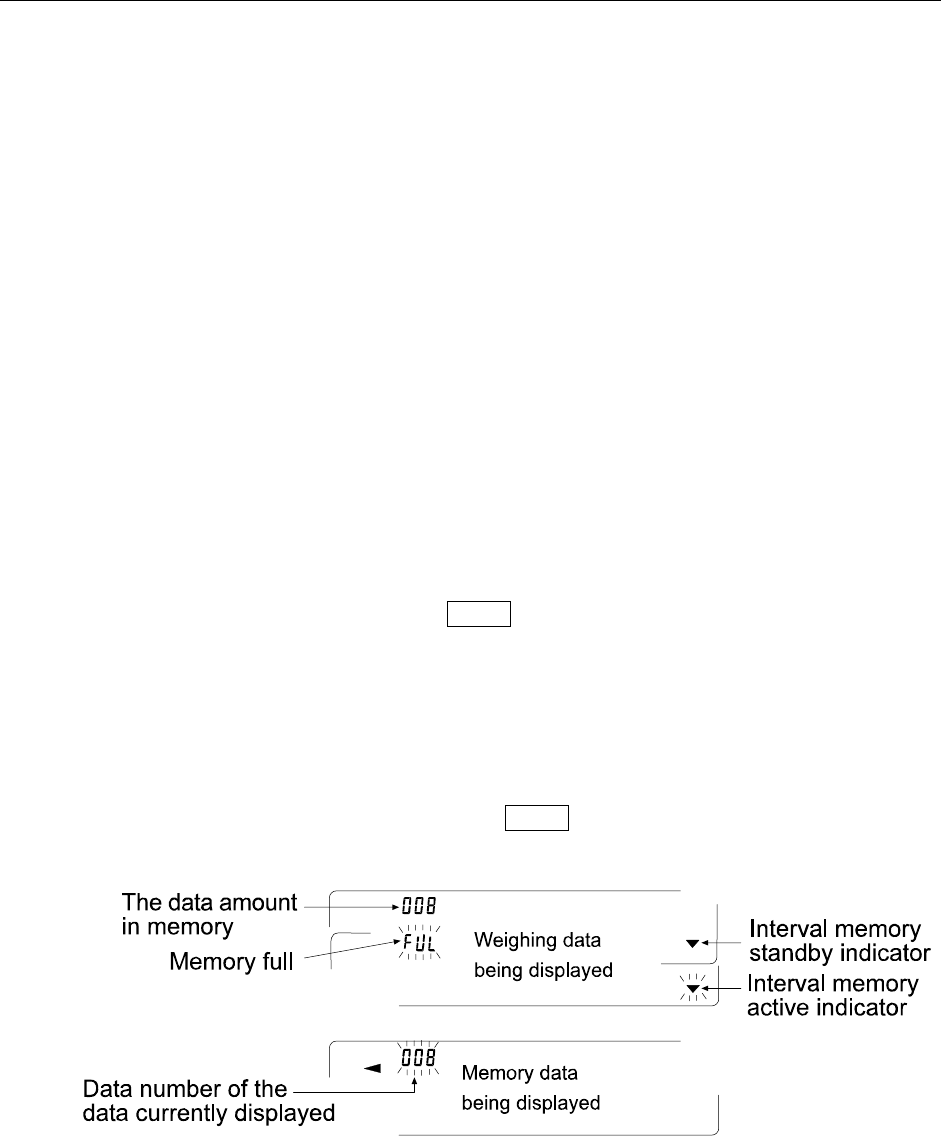
59
11-2 Memory for Weighing Data
The data memory function can store 200 sets of weighing data (100 set if time and date are
added). Even if the AC adapter is removed, the data is maintained in non-volatile memory.
It is not necessary that the printer or computer be continually connected to the balance,
because the balance stores the weighing data in memory.
The data in memory is available to be displayed on the balance for confirmation, or to output
several sets of data at one time to a printer or personal computer. In the function setting, what
data is to be added to the output data (ID number, data number, time and date) can be
selected.
Storing the weighing data
Note
If “Clr” appears blinking in the upper left of the display, delete the data in memory.
1 Set the “Data memory (data)” parameter to “2”.
2 Set the “Time/Date output (5-td)” parameter as necessary.
3 The storing operation depends on the “Data output mode (prt)” parameter setting. Four types
of operating modes are available to store data.
Key mode When the PRINT key is pressed and the displayed value is
stable, the balance stores the weighing data.
Auto print modes A and B When the displayed value is stable and the conditions of “Auto
print polarity”, “Auto print difference” and reference value are
met, the balance stores the weighing data.
Interval memory mode Weighing data is stored at an interval specified in “Interval time
(int)”. Press the PRINT key to start and stop this mode.
Caution
When weighing data is being stored in memory, the data can not be output to a personal
computer using the RS-232C interface.
“fUl” indicates that memory is full or the memory capacity has been reached. More data can
not be stored unless the memory data is deleted.
Automatic self calibration can not be used while the interval memory mode is active.


















